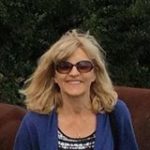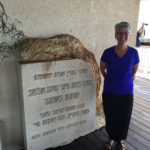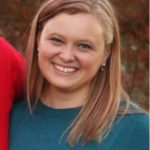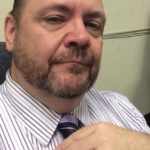This year Echoes & Reflections created its inaugural Educator Advisory Committee (EAC). The purpose of the Committee is to gather thoughtful and diverse educators from around the United States to provide us with expert educational guidance and feedback so we can continue to offer the highest quality of Holocaust education professional development to teachers. In the aftermath of the events in Charlottesville, we reached out to our members to understand how as they return to the classroom they hope to inspire their students through the lens of Holocaust education.
Here are some of their responses:
Susan Schinleber

“The events in Charlottesville over the weekend speak more eloquently than I ever could and explain in stark and horrifying terms why we need to teach the Holocaust to our students. I feel compelled to teach this subject now more than ever and for so many reasons: to bear witness; to teach students that their actions count; to show that the Holocaust was never inevitable. Learning about the Holocaust helps our students make the connection between what happened then and what is happening in the world around them. I never stop reading and studying what happened then and I bring that passion to the classroom and hope that it sows the seeds it needs to.”
Susan Schinleber teaches English and Public Speaking at North Shore Country Day School, a K-12 private school in Winnetka, IL.
Eden C. Stein, Ph.D.

“This year my 8th graders will return to school horrified, with questions and anger over what has recently transpired in Charlottesville. “Why do people hate the Jews?” is a question I have often heard. They will be eager to read a Holocaust memoir and to learn about the history of antisemitism along with the history of racism. Following the reading of these important books they will be inspired to do something. In my Language Arts classroom, that something will be to write letters for social change – real letters that will actually be sent to a local, state, or national legislature. My hope is to also inspire them to recognize bigotry, racism and antisemitism in the world surrounding them and speak up to eradicate it.”
Eden C. Stein is certified for Language Arts and Social Studies 4-8 and History 7-12. She teaches at Worthington Hooker School in New Haven, CT.
Susan Davenport

“As we begin a new school year I hope to inspire my students to speak out. This hope was renewed over the weekend when there was very little being said about the events in Charlottesville, VA. Elie Wiesel’s profound quote, “Neutrality helps the oppressor, never the victim. Silence encourages the tormentor, never the tormented,” seems extremely applicable to the current world climate. My goal for the school year is to encourage my students to be brave and stand up for what is right; for them to understand that silence does not help. It is my hope that they lead their lives by Wiesel’s quote.”
Susan Davenport teaches English 10, English 11, Humanities, and Speech at John S. Battle High School in Bristol, VA.
William Mason

“In light of the most recent current events, Holocaust education is more important now than ever. It’s our sacred duty as teachers to inspire our students to be a voice of reason and understanding that the events of 80 years ago cannot be permitted to happen again. Holocaust education can be the inspiration for students to see the evil and work against it.”
William Mason teaches American History & Government and Holocaust Studies at Bishop Loughlin High School in Brooklyn, NY.
Let us know: How do you hope to inspire your classroom in the New Year?


